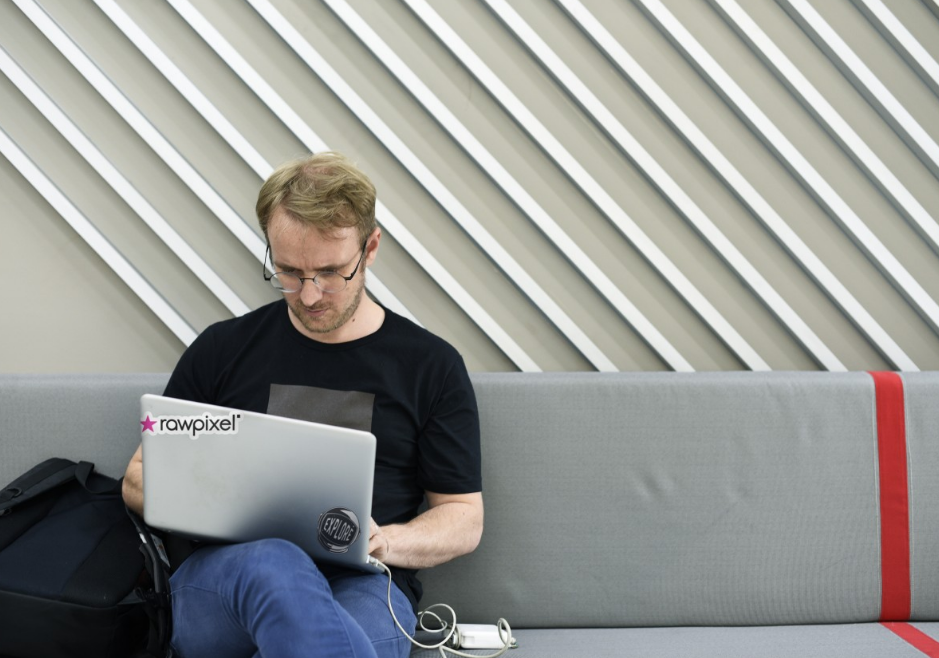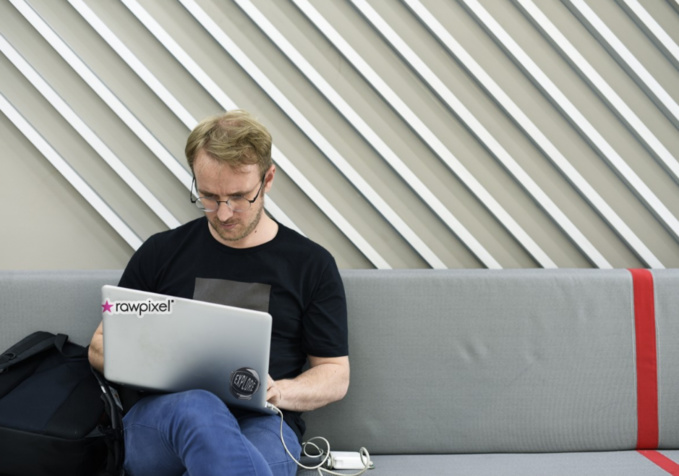It can be difficult for an emotionally sensitive person to find a middle ground. If your “natural need” for tasks and stimulation deviates from the norm, others will surprise and even upset with your lifestyle. Not knowing yourself thoroughly and not having a stable feeling of self-identity, you will easily succumb to the opinions of others and as a result will not understand how you live.
There are several strategies that can help you find the middle ground for optimal performance both at work and in life.
1. Maintain close relationships with yourself
The road to optimal productivity at work is as unique as fingerprints. To identify your own needs, you must maintain close relationships with yourself and develop self-knowledge skills. Imagine yourself a researcher, and arm yourself with unquenchable curiosity about your inner state.
Observe how different actions, environments, and people influence you. Try to make notes or remember how you act in different conditions. You can start the practice of mindfulness or start a journal of impressions.
2. Cut off the "the humming crowd"
Your needs are different from what common sense implies. Be especially careful with criticism or comments like: “This is too much,” “You need to rest,” “I can't believe you did it.” Traditional wisdom is not always right. Every time someone says “you should”, no matter how good their intentions are, think about whether their words make sense.
No one has full access to your unique physical and mental warehouse, desires and dreams.
In fact, you don’t need to demonstrate to society what you like and what you do. No need to publish your discoveries or spread about your preferences. All that is needed is to preserve a curious and information-hungry part of you, and believe that the world provides us with a set of educational opportunities. You have the right to refuse those that do not suit you.
3. Be honest and respect your limitations.
In the process of finding the perfect layout for an optimal life, you will find yourself face to face with your limitations. To show respect for your limitations means to dare to look at yourself as you are. Treat yourself fairly, but with respect, and have patience and knowledge that will help you find your place without getting bogged down in other people's opinions.
4. Step out of your comfort zone
To find your level of maximum productivity, you need to constantly increase level of tasks - either by finding new directions, or by delving into what you are doing.
5. Praise your curiosity
Emotionally gifted people are curious. But we live in a society that encourages cynicism and often treats curiosity as naivety. We are afraid to seem fools and therefore refrain from openness. Modern education encourages critical thinking, but it has a useless side effect: increased criticality and cynicism. This can be observed in all aspects of life, starting with reality shows and ending with the experience of socialization, when it is almost impossible to survive without a pinch of sarcasm.
Based on "Emotional Sensitivity and Intensity" by Imi Lo
There are several strategies that can help you find the middle ground for optimal performance both at work and in life.
1. Maintain close relationships with yourself
The road to optimal productivity at work is as unique as fingerprints. To identify your own needs, you must maintain close relationships with yourself and develop self-knowledge skills. Imagine yourself a researcher, and arm yourself with unquenchable curiosity about your inner state.
Observe how different actions, environments, and people influence you. Try to make notes or remember how you act in different conditions. You can start the practice of mindfulness or start a journal of impressions.
2. Cut off the "the humming crowd"
Your needs are different from what common sense implies. Be especially careful with criticism or comments like: “This is too much,” “You need to rest,” “I can't believe you did it.” Traditional wisdom is not always right. Every time someone says “you should”, no matter how good their intentions are, think about whether their words make sense.
No one has full access to your unique physical and mental warehouse, desires and dreams.
In fact, you don’t need to demonstrate to society what you like and what you do. No need to publish your discoveries or spread about your preferences. All that is needed is to preserve a curious and information-hungry part of you, and believe that the world provides us with a set of educational opportunities. You have the right to refuse those that do not suit you.
3. Be honest and respect your limitations.
In the process of finding the perfect layout for an optimal life, you will find yourself face to face with your limitations. To show respect for your limitations means to dare to look at yourself as you are. Treat yourself fairly, but with respect, and have patience and knowledge that will help you find your place without getting bogged down in other people's opinions.
4. Step out of your comfort zone
To find your level of maximum productivity, you need to constantly increase level of tasks - either by finding new directions, or by delving into what you are doing.
5. Praise your curiosity
Emotionally gifted people are curious. But we live in a society that encourages cynicism and often treats curiosity as naivety. We are afraid to seem fools and therefore refrain from openness. Modern education encourages critical thinking, but it has a useless side effect: increased criticality and cynicism. This can be observed in all aspects of life, starting with reality shows and ending with the experience of socialization, when it is almost impossible to survive without a pinch of sarcasm.
Based on "Emotional Sensitivity and Intensity" by Imi Lo



















